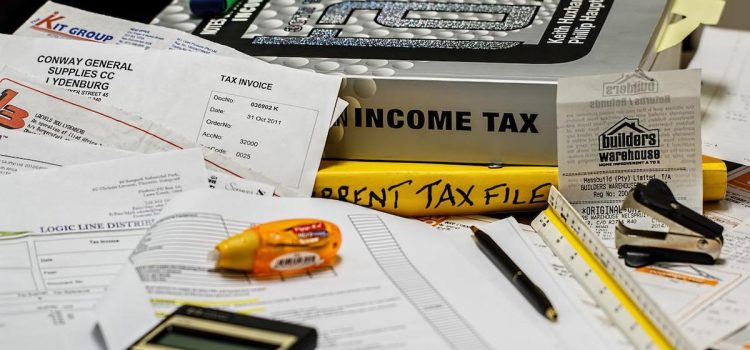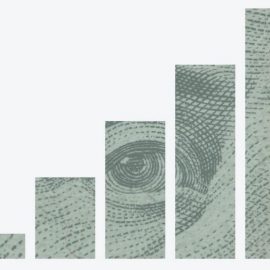
This is a free excerpt from one of Shortform’s Articles. We give you all the important information you need to know about current events and more.
Don't miss out on the whole story. Sign up for a free trial here .
What is the FairTax Act? How does it work? Will the FairTax Act be passed?
A House Republican has introduced the FairTax Act of 2023, a bill that would replace the income tax and other taxes with a national sales tax. If the bill became law, Americans would no longer file tax returns—instead, they’d pay a 30% tax on their purchases.
Read on to learn about what the FairTax Act is, the main critiques of the Act, and the likelihood of it being passed.
The FairTax Act of 2023
On January 9, Republican representative Earl L. “Buddy” Carter of Georgia introduced a bill called the FairTax Act of 2023. If passed, it would be the largest restructuring of the U.S. tax code in over a century. In this article, we’ll explain what the FairTax Act is, what supporters say its benefits are, and why the Act has drawn widespread critiques.
What Is the FairTax Act?
The central idea behind the bill is to replace the income tax and other taxes (such as estate, gift, and payroll) with a tax on consumption (purchases).
If passed, this bill would change the government in the following ways:
- The federal government would generate revenue through a national sales tax of 30%, rather than through income tax and other taxes.
- States, rather than the federal government, would be responsible for collecting these retail taxes.
- Because people wouldn’t be filing taxes, the Act would eliminate the need for the Internal Revenue Service (IRS).
The bill would also impact Americans’ lives by eliminating the need to file taxes, instead, Americans would pay taxes as part of every purchase they made, such as clothing and healthcare. Additionally, all households would also receive a monthly, universal “prebate”—money from the government that would offset the 30% sales tax. That way, families could still afford necessities such as groceries and housing.
Why Restructure the Nation’s Tax Code?
According to Carter and the bill’s other Republican co-sponsors, the FairTax Act would benefit the country in several ways. First, it would boost the economy. Second, it would eliminate the headache of filing taxes. Third, it would encourage Americans to save and invest their money, since they’d be allowed to keep all of their income instead of spending it on taxes. Finally, the Act would make it easier for Americans to start and grow small businesses since business owners wouldn’t need to pay costs associated with tax compliance.
Main Critiques of the FairTax Act
The FairTax Act has drawn critiques from across the political spectrum.
Critique 1: The Act Would Be Challenging to Implement
First, some analysts point out that it would be challenging to make such dramatic changes to the tax code—for instance, shifting the responsibility of tax collection from the federal government to state governments.
Furthermore, the FairTax Act’s plan to restructure the tax code is unprecedented, meaning it could create unexpected problems. For example, it’s unclear how the new code would influence Americans’ spending. It’s also unclear how the Act would affect the economy: Some analysts claim it would significantly boost GDP, while others offer more conservative estimates.
Critique 2: Aspects of the Act Defy Conservative Values
Second, right-leaning critics of the FairTax Act claim it goes against the conservative ideal of a small government. The Act’s “prebate” features closely resembles the idea of a universal basic income—an idea that liberals tend to support, given that it reflects the leftist ideal of large entitlement programs. Additionally, even though the Act would eliminate the IRS, it likely wouldn’t reduce the size of the government overall; it would just shift work from the IRS to new federal agencies tasked with implementing the new code.
Critique 3: The Act’s Tax System Is Regressive
Third, left-leaning critics of the FairTax Act claim it’s unfair because its tax code is regressive, meaning that lower-income people would pay a higher proportion of their earnings than higher-income people. These critics point to analysis predicting that Act’s tax would result in tax cuts for the wealthy, not the poor. Some experts estimate that the top 1% of earners would receive an average tax cut of $75,000.
What’s Next?
It doesn’t look like Americans will be saying goodbye to the headache of filing their taxes anytime soon—it’s highly unlikely the FairTax Act will become law. As Republicans hold a slim majority in the House, five “no” votes are enough to kill the bill (assuming all Democrats also vote “no”).
At least five House Republicans have already expressed their disapproval of the bill. Even though the bill is unpopular among many Republicans and unlikely to become law, some Democrats are still seizing the opportunity to use the bill as a cudgel against the GOP with prominent Democratic leaders depicting the bill as a Republican-wide effort to raise taxes on lower-class Americans and slash entitlement programs.

Want to fast-track your learning? With Shortform, you’ll gain insights you won't find anywhere else .
Here's what you’ll get when you sign up for Shortform :
- Complicated ideas explained in simple and concise ways
- Smart analysis that connects what you’re reading to other key concepts
- Writing with zero fluff because we know how important your time is






